Navigating the digital world often involves understanding various technical concepts that underpin our online experiences. One such concept is the difference between a proxy IP and a real IP. These terms might sound like jargon, but they play crucial roles in how we access and interact with the internet. In this article, we’ll explore these differences, delve into their applications, and introduce you to Proxy 302, a service that exemplifies the flexibility and power of using proxies.
Understanding IP Addresses

What is an IP Address?
An IP address is akin to your home address but for your computer on the internet. It is a unique identifier that allows devices to communicate over a network. Without IP addresses, data wouldn’t know where to go, much like mail without an address.
Real IP Address
A real IP address, also known as a public IP, is assigned to your device by your Internet Service Provider (ISP). This address is visible to the outside world and is used to identify your device on the internet. Think of it as your device’s passport, allowing it to access global content while also making it traceable.
Proxy IP Address
What is a Proxy IP?
A proxy IP acts as an intermediary between your device and the internet. When you use a proxy server, your real IP address is hidden, and the proxy IP address is what websites and online services see. Imagine it as a middleman who delivers your messages without revealing your identity.
Types of Proxy IPs

- HTTP Proxies: These are designed for web traffic, handling HTTP and HTTPS requests. They are great for browsing and accessing web content.
- SOCKS Proxies: More versatile than HTTP proxies, SOCKS proxies handle a variety of traffic types, including email, peer-to-peer, and streaming.
- Transparent Proxies: These do not hide your IP address and are often used for caching or filtering content.
Related Reading: HTTP vs SOCKS5: Which Proxy Should You Choose?
Key Differences Between Proxy IP and Real IP

| Aspect | Real IP | Proxy IP |
|---|---|---|
| Visibility and Privacy | Exposes your device’s location and identity to websites and online services, raising privacy concerns. | Masks your real IP address, providing an additional layer of privacy by interacting with proxy IPs. |
| Security | Vulnerable to direct attacks because it is exposed to the internet. | Acts as a buffer against potential threats, helping to protect against malicious attacks. |
| Access and Restrictions | Subject to regional restrictions based on your geographical location, limiting content access. | Bypasses geo-restrictions by routing traffic through servers in different locations, unlocking content. |
Visibility and Privacy
- Real IP: Directly exposes your device’s location and identity to websites and online services. This can lead to privacy concerns if your browsing habits are tracked.
- Proxy IP: Masks your real IP address, providing an additional layer of privacy. Websites and services interact with the proxy IP, keeping your real IP hidden.
Security
- Real IP: Vulnerable to direct attacks because it is exposed to the internet.
- Proxy IP: Offers a buffer between your device and potential threats. This can help protect against malicious attacks and unauthorized access.
Access and Restrictions
- Real IP: Subject to regional restrictions based on your geographical location. Certain content might be inaccessible depending on where you are.
- Proxy IP: Enables bypassing of geo-restrictions by routing traffic through servers in different locations. This allows access to content that might otherwise be blocked.
Practical Applications
When to Use a Real IP
- Streaming Services: Many streaming platforms prefer real IPs for content delivery to ensure the best quality and compliance with regional licensing agreements.
- Online Banking: For security reasons, financial institutions often require a real IP to verify transactions and account access.
When to Use a Proxy IP
- Bypassing Geo-Restrictions: Access content from different regions, such as streaming services or websites unavailable in your location.
- Enhanced Privacy: Protect your identity and browsing habits from being tracked by websites, advertisers, and ISPs.
- Web Scraping and Automation: Use proxy IPs to distribute requests and avoid IP bans when collecting data from websites.
Introducing Proxy 302: A Flexible Proxy Solution
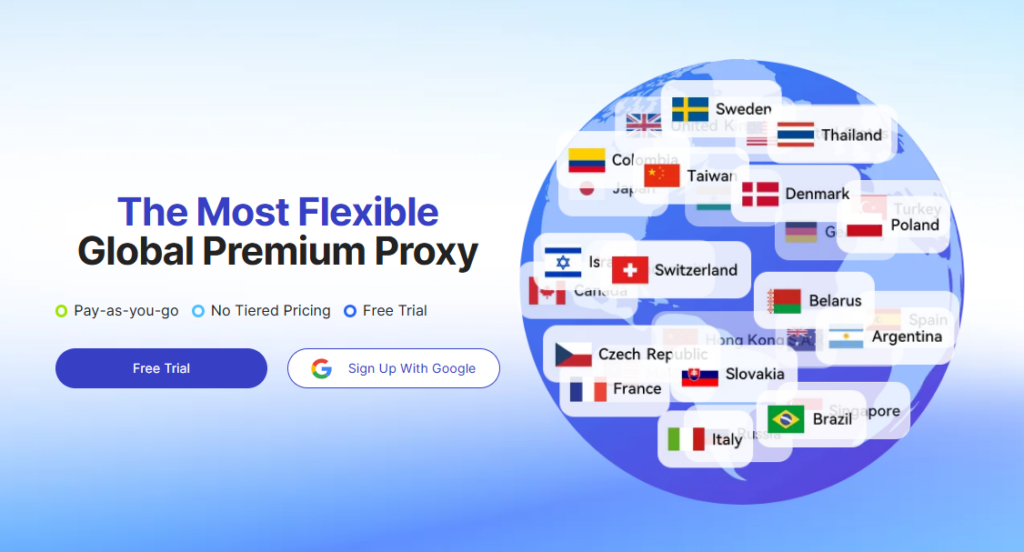
In the realm of proxies, Proxy 302 stands out as a versatile and user-friendly option. Let’s explore what makes it a top choice for users around the globe.
Global Reach with Over 65 Million IPs
Proxy 302 boasts an impressive network of over 65 million IPs worldwide. This extensive coverage ensures that users can access content from virtually any location, bypassing geographic restrictions effortlessly. Whether you’re a business needing to conduct market research in different countries or an individual wanting to access region-specific content, Proxy 302 has you covered.
Comprehensive Proxy Types Including City-Level Targeting
One of the standout features of Proxy 302 is its comprehensive range of proxy types, including city-level targeting residential proxies. This means you can select proxies based on specific cities, providing unparalleled precision for tasks like localized SEO testing, ad verification, and accessing location-specific content.
Flexible Pay-As-You-Go Model
Unlike many proxy services that lock you into monthly subscriptions, Proxy 302 offers a pay-as-you-go model. This flexibility allows you to pay only for what you use, making it an economical choice for both occasional users and high-volume needs. You won’t be stuck paying for unused bandwidth, which is a breath of fresh air in the subscription-heavy digital services industry.
Practical Cases and Benefits of Using Proxy 302
Enhanced Web Scraping Capabilities
For businesses involved in data collection, Proxy 302’s vast pool of IPs and city-level targeting can significantly enhance web scraping efforts. By rotating IPs and selecting specific locations, companies can gather data without being detected or blocked by websites.
Improved Online Privacy and Security
Individuals concerned about online privacy will find Proxy 302’s masking capabilities invaluable. By hiding your real IP address, you can browse the web more securely, minimizing the risk of data breaches and identity theft.
Seamless Access to Global Content
Whether you’re a digital nomad, an expatriate, or simply a curious internet user, Proxy 302 allows you to access content from around the world without restrictions. This is particularly useful for streaming services, news sites, and social media platforms that may have regional limitations.
Conclusion
Understanding the difference between proxy IPs and real IPs is essential for navigating the internet safely and efficiently. While real IPs are necessary for certain secure transactions and services, proxy IPs offer enhanced privacy, security, and access to restricted content. By leveraging the strengths of both, you can tailor your online experience to meet your specific needs.
Ready to experience the freedom of Proxy 302? 👉 Start Your Free Trial Now 👈and discover how our global proxy network can transform your internet experience. No monthly subscriptions, just flexible, reliable access to the web. Visit Proxy 302 to get started!


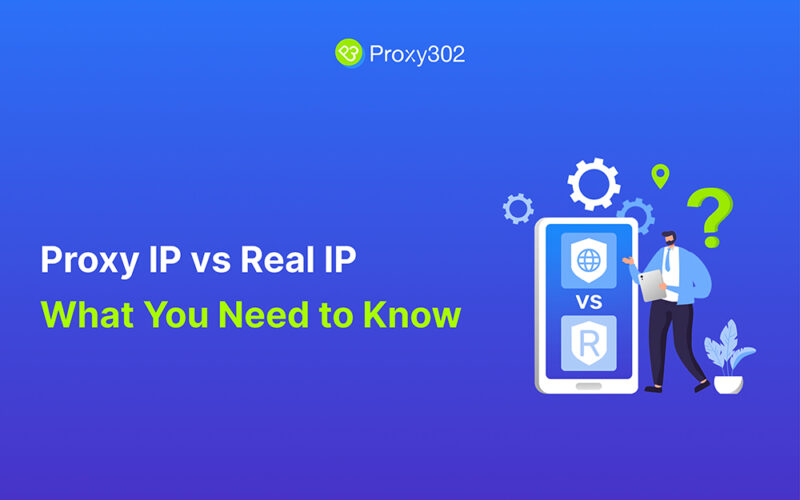
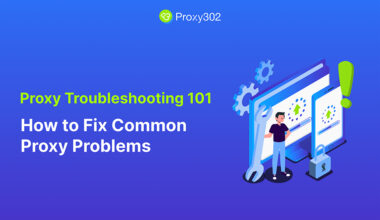
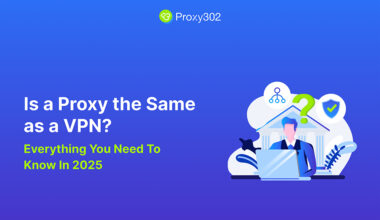


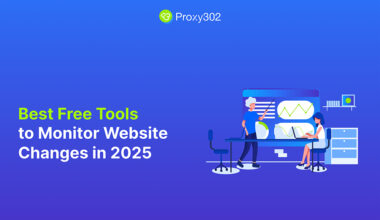
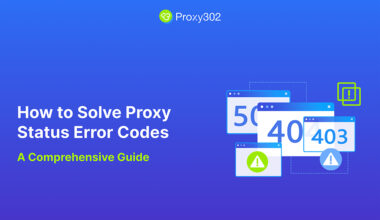
5 comments
Thanks for sharing. I read many of your blog posts, cool, your blog is very good.
Your point of view caught my eye and was very interesting. Thanks. I have a question for you.
Thank you for your sharing. I am worried that I lack creative ideas. It is your article that makes me full of hope. Thank you. But, I have a question, can you help me?
Thank you for your sharing. I am worried that I lack creative ideas. It is your article that makes me full of hope. Thank you. But, I have a question, can you help me?
I don’t think the title of your article matches the content lol. Just kidding, mainly because I had some doubts after reading the article.